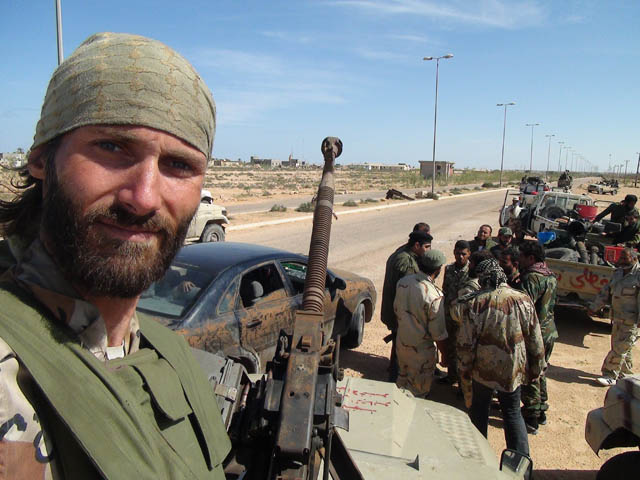Update: Geoffrey Ingersoll of Business Insider has written an article titled “American Who Fought With Libyan Rebels: I Was Right About Benghazi” about my accurate assessment of what happened in Benghazi which I shared with Business Insider on September 12, 2012, the day after the 2012 Benghazi attack occurred.
The New York Times investigation by David Kirkpatrick into the September 11, 2012 attack on a US compound in Benghazi, Libya that killed four Americans, including Ambassador Christopher Stevens, has confirmed much of my theory about who was responsible for the attack, what motivated it, and how little planning by the attackers was involved.
I knew how militias operated in Libya because I fought in the Libyan Civil War in 2011 as part of the rebel forces. Yet surprisingly, few journalists thought to email or call me after the Benghazi attack for insight into what had likely happened.
Instead, many journalists were reporting opinions that were not accurate, such as the attack being “a coordinated, military-style, commando-type raid” carried out by Al Qaeda – opinions offered by the regular cadre of talking heads who are popular at cocktail parties in Washington, DC but who have no operational experience on the ground in Libya and certainly no experience fighting as part of a Libyan militia or military unit.
The media often follows this same pattern of behavior when reporting on the Syrian Civil War as well.
I first shared my theory about Benghazi with journalists who did think to contact me on September 12, 2012 (the very next day after the attack). I based this theory on my academic background in Security Studies, years of experience in the region, clues from a few eyewitness accounts that had emerged but were largely dismissed or overlooked by the media, and most importantly on my experiences fighting in the Libyan Civil War which gave me unique insight into how the militias operate.
Business Insider published my thoughts and theory about the Benghazi attacks on September 13, 2012 (just two days after the attacks) in an article titled Insiders Tell Us What Really Happened in Libya. My views on Benghazi can also be found in Jack Murphy and Brandon Webb’s New York Times Bestseller book Benghazi: The Definitive Report.
It has been frustrating to watch the tragic events in Benghazi being used as a political football in the US Congress and media. I have been confident that my theory about that day was much closer to what actually happened than what politicians and much of the press have been reporting for the past year. The political and media circus about Benghazi for the past year has been irresponsible because the myths and misrepresentations about what happened in Benghazi has politicized a tragedy that should have united all Americans. I hope those of you with an interest in what actually transpired that horrible day in Benghazi will take the time to read David Kirkpatrick’s New York Times report.

